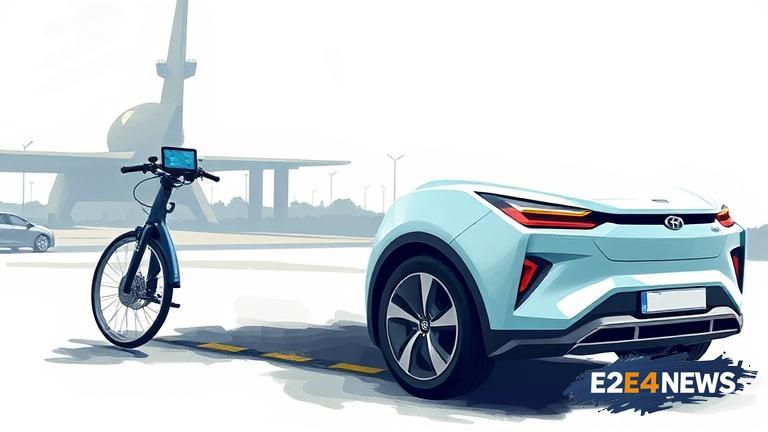The Indian government has announced a comprehensive plan to promote the adoption of electric vehicles (EVs) in the country. The plan includes a range of incentives and initiatives aimed at encouraging the use of EVs, reducing greenhouse gas emissions, and improving air quality. According to reports, the government plans to offer subsidies to EV manufacturers, as well as to consumers who purchase EVs. The subsidies are expected to be in the form of tax exemptions, reduced registration fees, and other benefits. Additionally, the government plans to invest in the development of EV charging infrastructure, including the installation of charging stations along highways and in urban areas. The plan also includes measures to promote the use of EVs in public transportation, such as buses and taxis. The government has set a target of having at least 30% of all new vehicle sales be electric by 2030. To achieve this goal, the government plans to work with state governments, industry stakeholders, and other organizations to create a supportive ecosystem for EVs. This will include the development of standards and regulations for EVs, as well as the creation of training programs for workers in the EV industry. The plan also includes measures to encourage the use of EVs in rural areas, where access to charging infrastructure may be limited. The government plans to work with private companies to develop innovative solutions for rural areas, such as mobile charging stations and battery swapping systems. Furthermore, the government plans to promote the use of EVs in the commercial sector, including for last-mile delivery and other applications. The plan also includes measures to encourage the development of domestic EV manufacturing, including the provision of incentives for companies that invest in EV production. The government has also announced plans to develop a national EV policy, which will provide a framework for the development of the EV industry in India. The policy will include measures to promote the use of EVs, as well as to address issues related to charging infrastructure, battery recycling, and other challenges facing the industry. The government has also announced plans to establish a national EV mission, which will be responsible for implementing the EV policy and promoting the adoption of EVs across the country. The mission will be headed by a high-level official and will include representatives from industry, academia, and government. The government has also announced plans to provide funding for research and development in the EV sector, including the development of new battery technologies and other innovations. The plan has been welcomed by industry stakeholders, who see it as a major step forward in promoting the adoption of EVs in India. However, some experts have cautioned that the plan will require significant investment and coordination to be successful. Overall, the Indian government’s plan to promote the adoption of EVs is a major step forward in reducing the country’s dependence on fossil fuels and promoting sustainable transportation. With the right implementation and support, the plan has the potential to make a significant impact on the environment and the economy. The plan is also expected to create new job opportunities in the EV sector, including in manufacturing, charging infrastructure development, and other areas. The government’s focus on promoting the use of EVs in rural areas is also seen as a positive step, as it will help to improve access to transportation and other services in these areas. The plan is also expected to have a positive impact on public health, as it will help to reduce air pollution and other negative environmental impacts associated with traditional fossil fuel-based transportation. In conclusion, the Indian government’s plan to promote the adoption of EVs is a comprehensive and ambitious initiative that has the potential to make a significant impact on the environment, the economy, and public health. With the right implementation and support, the plan is expected to achieve its goals and help to establish India as a leader in the global EV industry.





